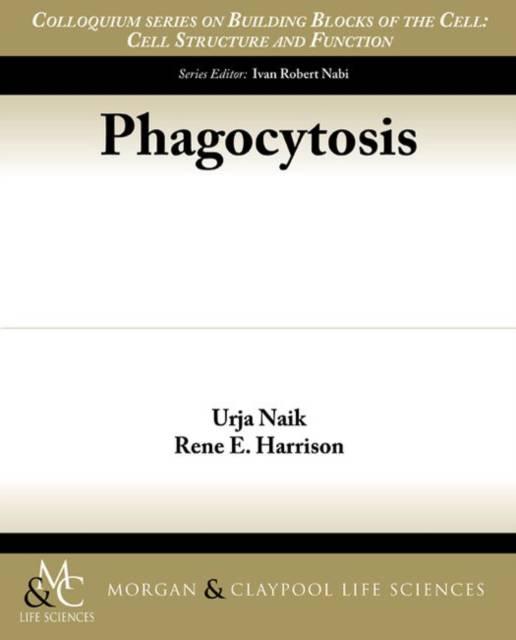
- Afhalen na 1 uur in een winkel met voorraad
- Gratis thuislevering in België vanaf € 30
- Ruim aanbod met 7 miljoen producten
- Afhalen na 1 uur in een winkel met voorraad
- Gratis thuislevering in België vanaf € 30
- Ruim aanbod met 7 miljoen producten
Zoeken
Omschrijving
Phagocytosis is an evolutionarily conserved mechanism that serves as the first line of host defense in multicellular organisms. The traditional definition of phagocytosis involves the engulfment and degradation of large solid particles (>0.5 ?m), initiated by receptor activation on phagocytes. It forms an essential aspect of innate immunity through the uptake and destruction of infectious pathogens, while also participating in the removal of apoptotic cells during tissue remodeling and development. Professional phagocytes, such as macrophages, neutrophils, and dendritic cells, are well equipped with a wide range of phagocytic receptors. In addition, these specialized leukocytes can signal to lymphocytes within the adaptive arm of host immunity. This review emphasizes the role of two well-characterized opsonic receptors, the Fc? receptor and the complement receptor, CR3 in macrophages. In particular, it focuses on the different mechanisms employed by these receptors during particle recognition and phagocytic uptake. Bacterial species often manipulate phagocyte signaling in order to evade their engulfment and degradation and consequently provide further insight into key regulators of the phagocytic process. Finally, we draw attention to the physiological relevance of studying the simultaneous engagement of multiple phagocytic receptors, in order to better understand receptor crosstalk and the underlying coordination of downstream signaling for efficient phagocytosis.
Specificaties
Betrokkenen
- Auteur(s):
- Uitgeverij:
Inhoud
- Aantal bladzijden:
- 105
- Taal:
- Engels
- Reeks:
Eigenschappen
- Productcode (EAN):
- 9781615044122
- Verschijningsdatum:
- 1/04/2013
- Uitvoering:
- Paperback
- Formaat:
- Trade paperback (VS)
- Afmetingen:
- 190 mm x 235 mm
- Gewicht:
- 204 g

Alleen bij Standaard Boekhandel
+ 198 punten op je klantenkaart van Standaard Boekhandel
Beoordelingen
We publiceren alleen reviews die voldoen aan de voorwaarden voor reviews. Bekijk onze voorwaarden voor reviews.











